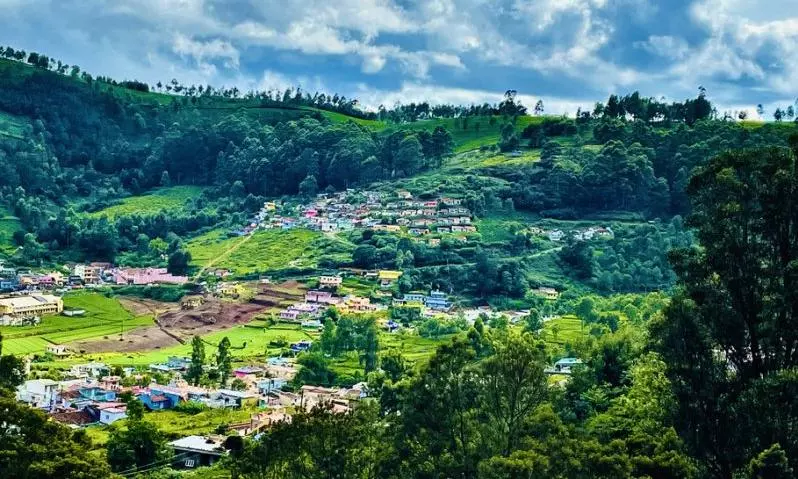
Why traders, tourism firms resent e-pass system in Ooty, Kodaikanal
Traders flay the focus of authorities on crowd control over infrastructure development, vital for livelihoods dependent on tourism

The introduction of the e-pass system in the popular hill stations of Nilgiris and Kodaikanal in Tamil Nadu seems to have not gone down well among the traders there.
While they were awaiting a significant post-pandemic revenue boost, the new system could impede tourist inflow, they feel.
Mandated by the Madras High Court for the period from May 7 to June 30 this year, the system aims to regulate tourist entry and assess the carrying capacity of these summer hotspots. While Udhagamandalam (Ooty) is part of Nilgiris district, Kodaikanal is part of Dindigul district.
Perennial problem
Despite assurances of no limits on e-pass issuance, discontent is brewing among traders and tourism firms.
Stella Francis, a local business owner, criticised the focus on crowd control over infrastructure improvement, vital for livelihoods dependent on tourism.
“People like us eke out a living with tourism. Nilgiris is faced with a severe water problem and traffic congestion. And these are not new. Why are the authorities not ready to handle this perennial problem? Boosting tourism is the solution to improve the livelihood of scores of small traders like us,” she said.
Following the High Court order, the Nilgiris district administration convened a meeting with civic body officials from across the district to bring in measures to ensure regular supply of drinking water to residents during the summer.
Tourists bear the brunt
Nilgiris district collector M Aruna had earlier said that a rainfall deficit during the Northeast Monsoon in 2023 had led to most reservoirs and water bodies turning dry during summer. She has asked the residents to file complaints with local civic bodies.
Tourists are also feeling the pinch of additional charges, with reports of hotels levying additional charges for water usage.
Many tourists who landed in Nilgiris after several hours of journey were troubled when hotels charged them for water usage. P Vinoth (36), a tourist from Trichy, was shocked to know when the hotel charged Rs 2,000 extra per day just for water usage.
"Already hotels charge hefty amounts for a 12-hour package. We learnt that many residential colonies receive water once every four days. Hoteliers charge up to Rs 30,000 for a triple room in a 12-hour package which includes charges of up to Rs 2,000 for water supply. Last year I had paid just Rs 16,000 for the same type of room,” he said.
NGOs hail move
Meanwhile, G Janardhanan, president of the Ooty Public Awareness Association, welcomed the High Court intervention as timely.
"Tourism helps businesses in Nilgiris to grow. But with an unprecedented number of tourists landing here during the summer season, it is quite worrying. The carrying capacity of the hill station was never studied. With this new study, we hope regulations would be introduced with a concern for the protection of the Nilgiris biosphere,” he said.
He added that regulations would actually improve competition in business and also encourage people to plan their vacation in advance instead of struggling in big crowds.
The verdict
The court’s decision came after startling revelations by the Tamil Nadu government, disclosing that approximately 20,000 vehicles throng Nilgiris daily. Justices N Sathish Kumar and D Bharatha Chakravarthy expressed concerns about the strain on resources and the environment, particularly as the region grapples with water scarcity and wildlife conflicts.
The judges emphasised the necessity of studying e-pass data to analyse traffic congestion and mitigate animal-human conflicts. It would be jointly conducted by Prof Amar Sapra of the Indian Institute of Management-Bangalore (IIM-B) and Prof Sachin Gunte of the Indian Institute of Technology-Madras (IIT-M), on carrying capacity.

